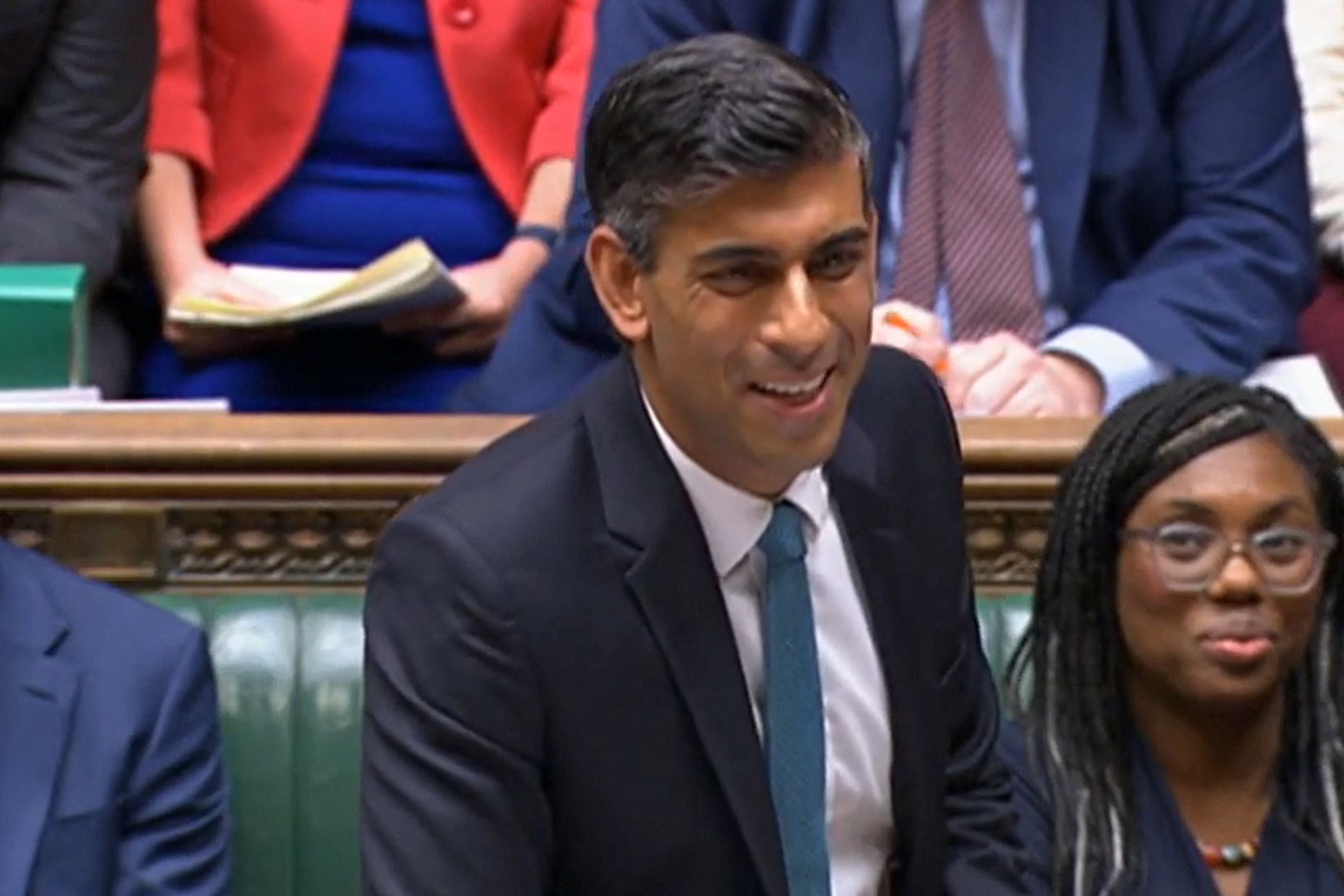Rishi Sunak proves he is the right choice for Tory MPs worried about their seats
Keir Starmer had all the advantages at Prime Minister’s Questions, but his new opponent fought back, writes John Rentoul


The noise told the story. The Labour benches cheered their leader, happy that he had the new prime minister on the run, but the real roar of enthusiasm came from the Conservative side. The mixture of relief and enthusiasm was unmistakable.
Conservative MPs have been embarrassed by their prime minister for a year now, since Boris Johnson tried to bounce them into exonerating Owen Paterson, found guilty of paid lobbying. That cringe became acute in Liz Truss’s three appearances at Prime Minister’s Questions. Today, we could hear the release of pent-up anxiety.
From the moment Rishi Sunak bounced to the despatch box, a Blair-like smile on his face, body language exuding confidence, Tory MPs knew that they had made the right decision. Keir Starmer had good questions, although he had to read them out from bits of paper that he put down by the side of the box after he had finished each one. Sunak didn’t answer them very well, but he had total command of the format. It used to be derided as “Punch and Judy” politics, which implies it is somehow trivial, but it is the way democracy is conducted at this level, and Sunak is good at it.
Starmer asked about Suella Braverman’s restoration to the cabinet after resigning for a breach of security. Sunak welcomed the prospect of “serious and grown-up” exchanges, before he accused Starmer of being “soft on crime and in favour of unlimited immigration”. But whereas Johnson might have just gone straight to the childish insults, Sunak smoothly answered Starmer’s question first, saying Braverman had admitted her mistake and he was “delighted to welcome her back into a united cabinet”.
It may not have been a satisfactory answer, but it was an answer, and the “united cabinet” line prompted another unforced Tory cheer.
Starmer’s other two attacks met a similar fate. He asked why Sunak would not abolish non-dom status to help close the deficit. It was a sly personal attack on the prime minister’s wife, without mentioning her, but Sunak told him to wait for the autumn statement and welcomed Labour’s realisation that “public spending does have to be paid for”.
The new prime minister’s weakest response was to Starmer’s question about a recording of Sunak during the last but one Tory leadership election, boasting to Tory members in Tunbridge Wells that he had started “changing the funding formulas to make sure areas like this are getting the funding they deserved”.
Sunak claimed that he was talking about “deprived areas in our rural communities”, but that is not what it sounded like. Still, he turned his answer into an attack on Starmer which managed to throw some shade at Liz Truss as well: “I told the truth for the good of the country; he told his party what it wanted to hear.”
It is not obvious how much normal floating voters care that Starmer wanted to make Jeremy Corbyn prime minister, or that he stood for the Labour leadership on a Corbynite platform, but those lines go down well with Tory MPs.
Indeed, the whole of Sunak’s first outing went down well with them, and you could see on some of the impassive faces on the Labour side that they realised they were up against someone who could beat them.
Sunak adopted an extravagantly deferential tone towards the Scottish National Party, in contrast to Johnson, who couldn’t resist chucking bricks and bottles in their direction, and to Truss, who didn’t even speak, in her seven weeks in office, to Nicola Sturgeon, the first minister of Scotland. Fun though such sectarianism might be, it is no way to win over wavering Scots voters.
To keep up to speed with all the latest opinions and comment, sign up to our free weekly Voices Dispatches newsletter by clicking here
Sunak promised to “work constructively” with the Scottish government, and gave a fairly constructive answer to Ian Blackford’s appeal to uprate benefits in line with prices, strongly hinting that he would.
He promised Caroline Lucas, the Green MP, that he would return to the ban on fracking in the 2019 Tory manifesto, and generally sought to erase the memory of the Tory party’s bad dream, not just of Truss’s premiership but of the party detritus of the chaotic final months of Johnson’s too.
Conservative MPs, each of whom has an acute sense to the nearest hundred of how many votes they would lose their seats by if Tory support remains where the opinion polls put it, looked as if they had just been released into the sunshine after a year in solitary confinement. They are not yet ready to hope that Sunak can win the election, but many of them can allow themselves to hope that he may save their seat for them.
Whether or not they have jobs in the reshuffle, they welcomed the smack of competent leadership. The noise in the Commons told us that they felt they could breathe again.






Join our commenting forum
Join thought-provoking conversations, follow other Independent readers and see their replies
Comments